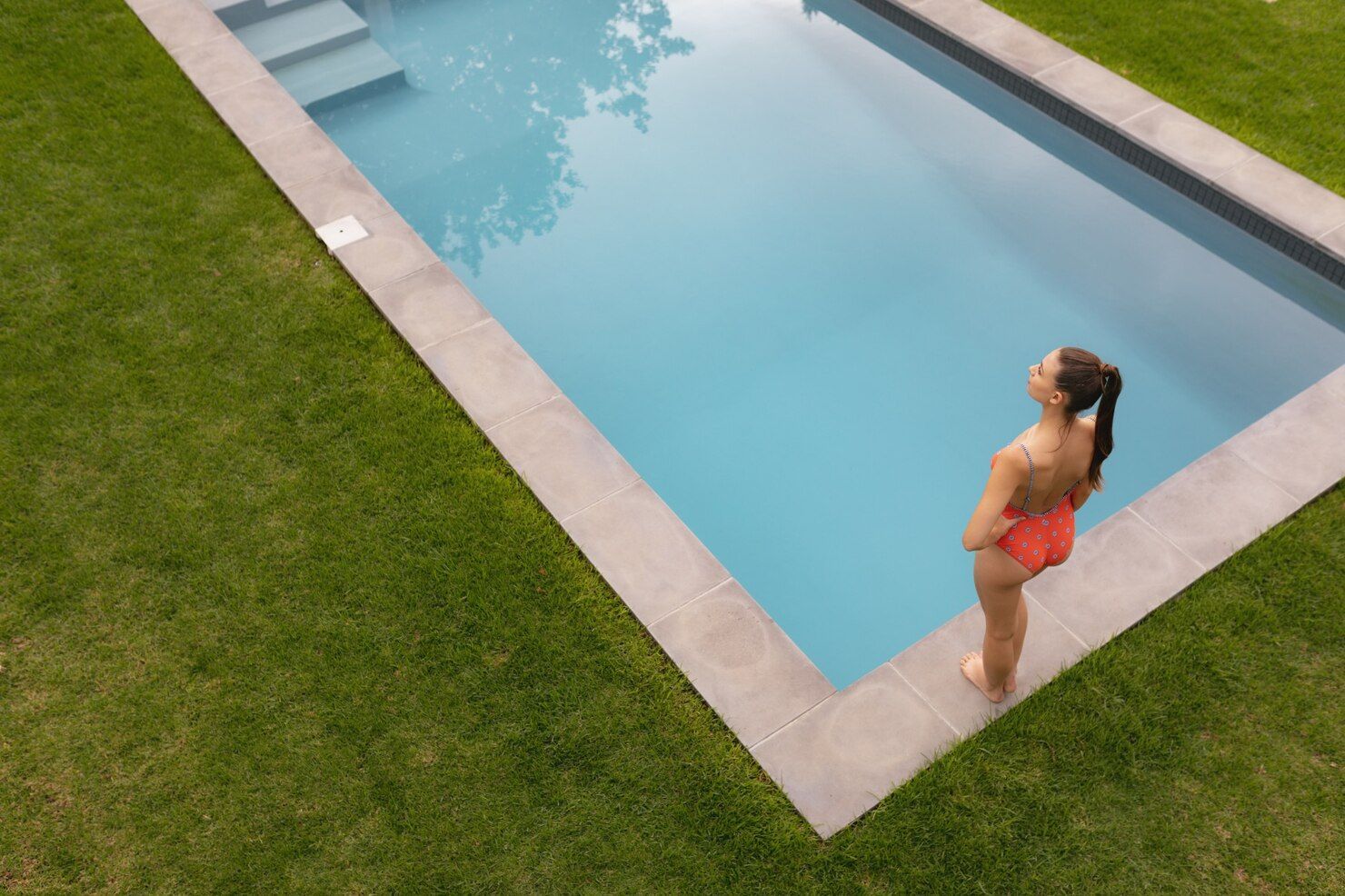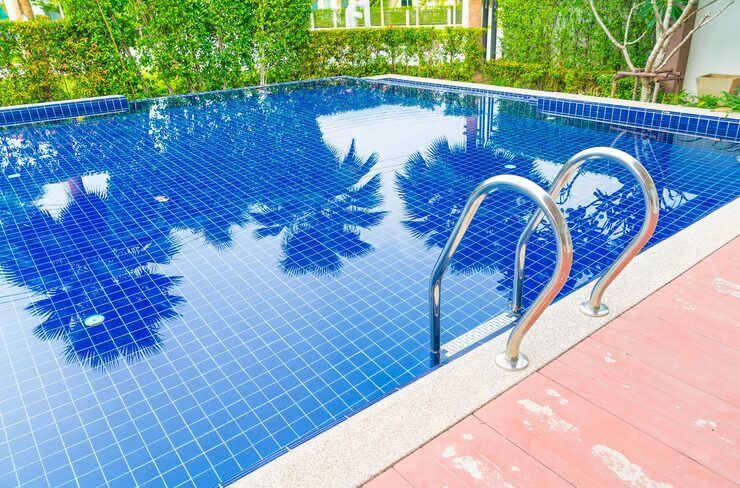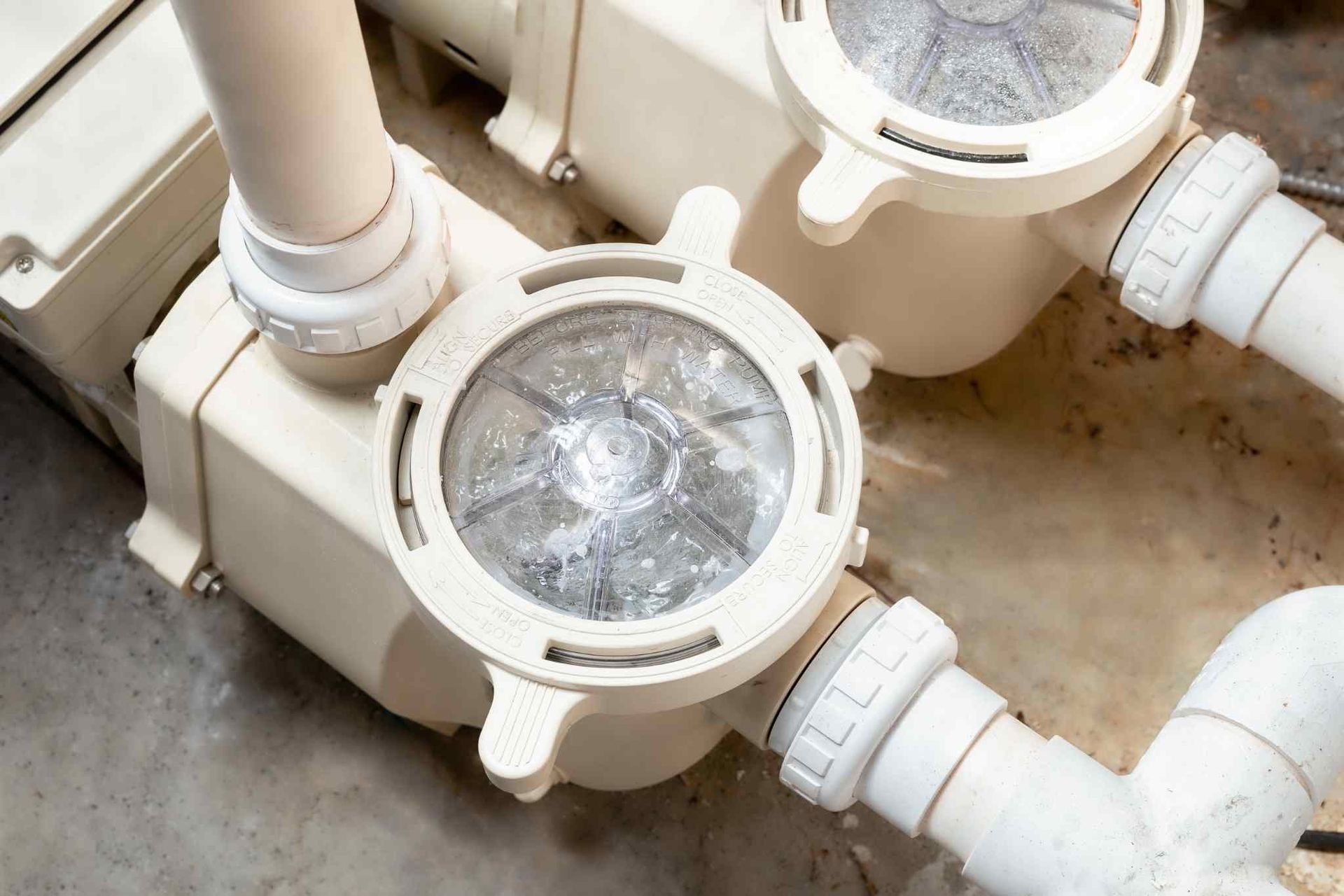Bromine vs Chlorine: Which is the Better Option for Your Swimming Pool?
Table of Contents
- Key Takeaways
- Key Differences Between Bromine vs Chlorine
- How Long Does Bromine Remain Effective in a Pool?
- Is It Safe to Combine Chlorine and Bromine?
- What Is Bromine in a Pool?
- Frequently Asked Questions
- Build the Perfect Pool Experience with Expert Help in Danbury, CT!
Key Takeaways
✔ Bromine lasts longer and is gentler on skin, while chlorine works faster and is better for outdoor pools.
✔ Bromine stays effective for several days, especially in warm or indoor water.
✔ Combining chlorine and bromine is unsafe because they react and cancel each other out.
✔ Bromine is best used in heated, indoor, or frequently used pools and spas
Chlorine is better for outdoor pools because it's a faster-acting disinfectant and is more effective in sunlight, while bromine is better for indoor pools, hot tubs, and spas because it's more stable in high temperatures and gentler on skin and eyes. Choose chlorine if you want a more affordable and faster-acting sanitizer for an outdoor pool; choose bromine if you prioritize a gentler option and have a hot tub or a heated pool, or if you have sensitive skin.
Key Differences Between Bromine vs Chlorine
Both chlorine vs bromine are disinfectants used to kill harmful bacteria, control algae, and keep water clear. However, they differ in how they react to sunlight, temperature, and water conditions. Each has strengths that make it better suited for specific pool types.
Best For
- Chlorine: Works best for outdoor pools because it reacts quickly and performs well in direct sunlight. It’s ideal for large backyard pools where exposure to UV rays is constant.
- Bromine: Best for bromine pool setups, such as hot tubs, spas, and indoor pools. It stays active longer in warm water, making it perfect for heated environments.
Sunlight
- Chlorine: More stable in sunlight and remains active under UV exposure. That’s why a pool contractor often recommends chlorine for outdoor pools with direct sunlight.
- Bromine: Degrades faster under sunlight, so it’s less effective outdoors. It performs better when the pool is shaded or indoors.
Temperature
- Chlorine: Begins to lose its disinfecting power at temperatures between 78°F and 82°F (25°C–28°C). In this range, chlorine dissipates faster,
algae growth increases, and calcium carbonate deposits (scale) are more likely to form, making the sanitizer less effective in maintaining clean water.
- Bromine: Bromine stays active in high temperatures, making it perfect for hot water environments. The water temperature should not exceed 104°F (40°C), and
bromine levels should be maintained between 4–8 ppm using test strips to ensure safe, effective
Stability
- Chlorine: Dissipates faster than bromine, especially in sunlight. Pool owners need to add chlorine more often to keep water clean.
- Bromine: Remains active longer in the water, which means fewer chemical adjustments are needed. Its stability helps maintain water clarity over time.
Skin and Eyes
- Chlorine: Used in pools to kill germs, but when it combines with sweat, dirt, and urine, it
forms chemical irritants called chloramines. These can cause skin dryness, eye irritation, and a strong odor that many swimmers find uncomfortable.
- Bromine: Much gentler on skin and eyes, producing little to no smell. This makes it ideal for people with sensitive skin or allergies. Understanding what does bromine do in a pool helps explain why it feels softer on the body.
Cost
- Chlorine: Less expensive and easier to find. Most pool supply stores carry several types of chlorine, from liquid to tablets.
- Bromine: More costly and requires a brominator for efficient use. Although it lasts longer, the initial cost can be higher.
Algae Control
- Chlorine: More
effective at controlling algae growth, especially in outdoor pools exposed to sunlight and organic debris.
- Bromine: Less powerful against algae, but what does bromine do in a pool includes acting as an effective algaecide in certain water conditions.
Summary Table: Bromine vs Chlorine
A quick comparison of bromine and chlorine shows how each sanitizer performs differently in various pool conditions,
helping pool owners decide which option fits their needs best.
| Feature | Chlorine | Bromine |
|---|---|---|
| Best For | Outdoor pools | Hot tubs, spas, indoor pools |
| Sunlight | More stable under sunlight | Degrades faster in sunlight |
| Temperature | Less effective above 82°F (28°C) | Remains active up to 104°F (40°C) |
| Stability | Dissipates quickly | Stays active longer in water |
| Skin & Eyes | Can cause irritation and odor | Gentler with less smell |
| Cost | More affordable | More expensive, needs brominator |
| Algae Control | Stronger against algae | Less effective but can act as algaecide |
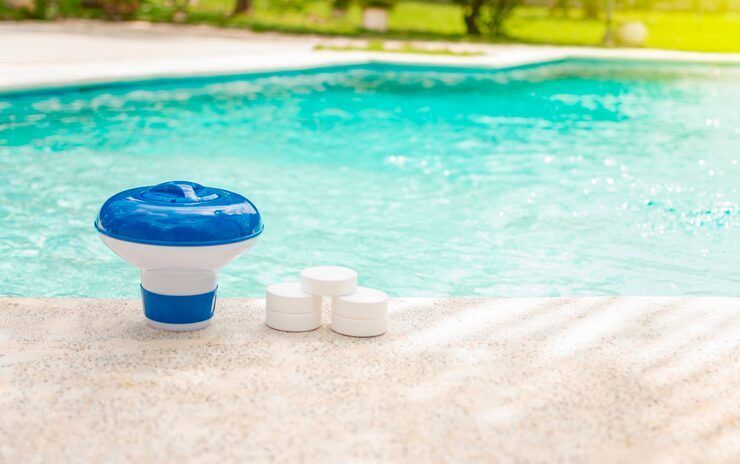
How Long Does Bromine Remain Effective in a Pool?
When comparing chlorine vs bromine, bromine is known for its long-lasting ability to stay active in water. Once added, it continues to sanitize longer than chlorine because it forms compounds that remain effective even after killing bacteria. Understanding what is bromine in a pool helps pool owners know why it lasts so long.
Factors Affecting Bromine’s Longevity
- Water Temperature: Warmer water helps bromine stay active, making it ideal for spas and hot tubs.
- Sunlight Exposure: UV rays break down bromine faster, so indoor or shaded pools preserve its strength better.
- Pool Maintenance: Proper filtration and
pH balance help bromine work efficiently for extended periods.
Average Lifespan
In a typical bromine pool, the sanitizer can last several days before needing reapplication. Unlike chlorine, which burns off quickly under sunlight, bromine maintains its effectiveness in stable water conditions. This makes it easier to manage, especially for those who want low-maintenance pool care.
Pool professionals and pool contractor services often recommend bromine for those who prefer fewer chemical adjustments. It’s slower to act than chlorine but offers consistent results in the long run.
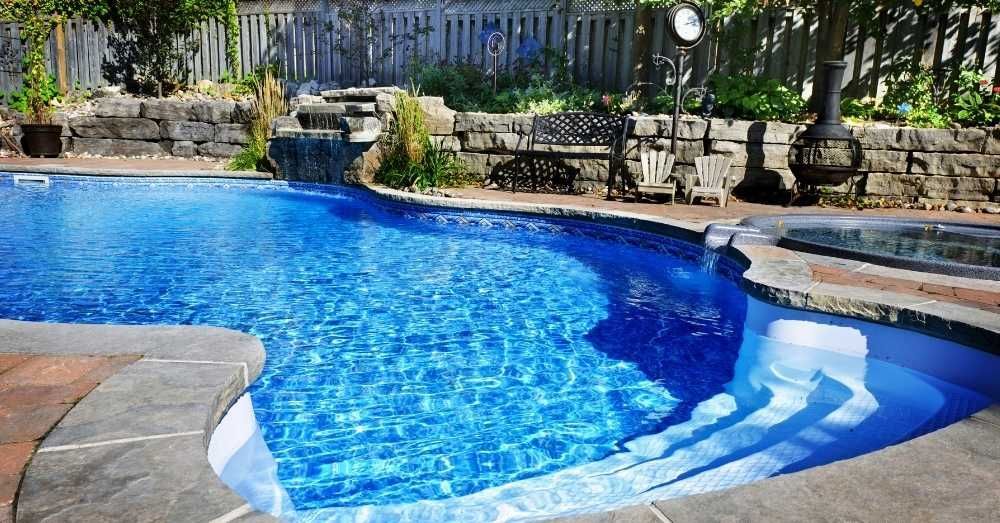
Is It Safe to Combine Chlorine and Bromine?
Many pool owners wonder if they can use both sanitizers together for stronger cleaning power. However, mixing chlorine vs bromine in the same pool is not safe. These chemicals react with each other and can create unstable compounds.
Reasons Not to Mix
- Chemical Reaction: When chlorine and bromine mix, they react to form a dense, thick
liquid that’s difficult to move or circulate.
- Safety Risks: Mixing them can cause dangerous chemical reactions or release harmful gases.
- Equipment Damage: The combination may corrode pool equipment and surfaces over time.
Best Practice
- Use One System: Stick with either chlorine or bromine, not both, to keep the water chemistry balanced and safe. Mixing them can cause chemical reactions that reduce sanitizer strength and damage equipment. If switching, drain the pool, clean all surfaces, and flush the system before adding the new sanitizer to prevent cross-contamination.
- Consult a Pool Contractor:
Before changing sanitizers, consult a professional for safe guidance. A pool contractor can check system compatibility, test the water, and ensure the switch is done correctly to avoid long-term equipment issues or safety risks.
What Is Bromine in a Pool?
Bromine performs best in environments where heat and stability are important. It’s the preferred choice for spas, hot tubs, and indoor pools that experience constant warmth and frequent use. Understanding what is bromine used for helps pool owners make the right decision for their setup.
Why Choose Bromine Over Chlorine
- Less Maintenance: It doesn’t require frequent chemical adjustments, making it easier to manage for busy pool owners. Bromine stays active longer in the water, meaning fewer treatments are needed to
keep the pool clean and balanced.
- Gentler Experience:
Reduced odor and irritation make swimming more enjoyable, especially for those with sensitive skin or allergies. Bromine produces fewer harsh byproducts, creating a more comfortable and pleasant swimming environment.
- Longer Stability: Bromine’s compounds remain active even after killing bacteria, allowing continued sanitation over time. This stability helps maintain consistently clear water and reduces the need for constant monitoring or reapplication.
A pool contractor might recommend bromine for homes with spas or smaller pools that are heated or indoors. When thinking about what does bromine do in a pool, the answer is simple—it keeps water clean and clear for longer periods, with less irritation and smoother comfort for swimmers.

Frequently Asked Questions
Can bromine be used in saltwater pools?
Bromine can be used in saltwater pools, but it’s not as common as chlorine systems. Saltwater generators typically work best with chlorine-based setups. If bromine is preferred, special equipment or manual dosing is usually needed to maintain proper levels.
How often should bromine levels be tested in a pool?
Bromine levels should be tested at least two to three times a week to ensure the water stays balanced. Maintaining proper bromine levels prevents bacterial growth and keeps the pool clear. Regular testing also helps avoid over-sanitizing, which can lead to skin dryness or eye irritation.
Does bromine affect pool equipment differently than chlorine?
Bromine is generally less corrosive to pool surfaces and equipment compared to chlorine. Its stability reduces chemical fluctuations that can wear down metal parts or pool liners. However, using proper maintenance routines is still important to prevent long-term damage.
How long after adding bromine can swimming resume?
Swimming can usually resume about 30 minutes after adding bromine, as long as the sanitizer level is within the safe range. Testing the water first is always recommended to ensure proper balance. Waiting helps avoid irritation and ensures the bromine has time to circulate.
What happens if bromine levels get too high?
When bromine levels are too high, swimmers may experience mild irritation to the skin or eyes. The best solution is to stop swimming and let the levels drop naturally through aeration and sunlight exposure. Testing the water regularly helps prevent this issue and keeps swimming conditions safe.
Build the Perfect Pool Experience with Expert Help in Danbury, CT!
Let FJV Construction bring dream pools to life in Danbury, CT, with precision, care, and craftsmanship that lasts. As a trusted pool contractor in Danbury, CT, our team focuses on delivering custom-built pools that blend beauty, function, and durability. Every project is handled with expertise and attention to detail, ensuring each pool becomes a centerpiece for relaxation and enjoyment. With over 15 years of experience, FJV Construction takes pride in turning ideas into stunning outdoor spaces designed to stand the test of time.
Get started today —
contact FJV Construction in Danbury, CT for a free consultation and make that dream pool a reality!


